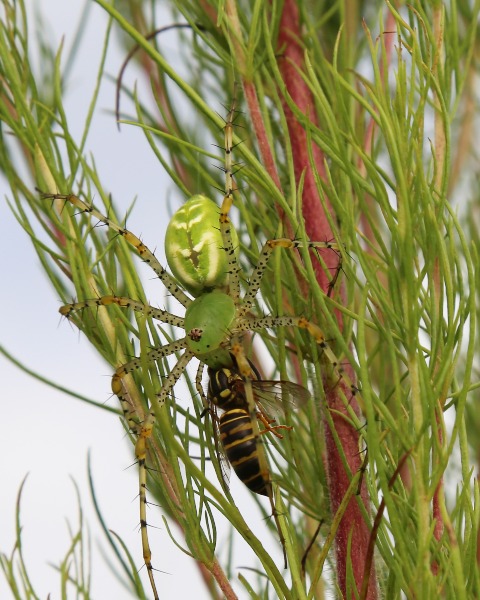Student Poster Display
Plant-Insect Ecosystems
Student
Student Competition
D3059: Can the combined interaction of insecticides and plant traits alter the abundance and distribution of Bemisia tabaci and its biocontrol communities?
- IA
Itohan Aigbedion-Atalor
Graduate Research Assistant, Entomology
University of Georgia
Tifton, Georgia - AP
Albertha J. Parkins
Graduate Research Assistant
University of Georgia
Tifton, Georgia - AK
Arash Kheirodin
Texas A&M University
Dallas, Texas 
Jermaine D. Perier (he/him/his)
Postdoctoral Research Associate AD
University of Georgia
Byron, Georgia
Paulo Cremonez, Ph.D. (he/him/his)
Assistant Professor & Extension Specialist
Auburn University
Auburn, Alabama
David G. Riley
Professor
University of Georgia
Tifton, Georgia
Alvin M. Simmons
Research Entomologist
USDA-ARS
Charleston, South Carolina
Jason M. Schmidt
Associate Professor
University of Georgia
Tifton, Georgia
Presenting Author(s)
Co-Author(s)
Bemisia tabaci Gennadius (Hemiptera: Aleyrodidae) is a pest of global concern, causing substantial yield losses to cotton and vegetables. Chemical control is the most common approach for managing B. tabaci. However, frequent use of insecticides disrupts natural enemy communities and can cause pest resurgence. Alternatively, plant breeding for defense traits can improve resistance to pests but can also have negative effects on natural enemies. Therefore, insecticides combined with plant defenses may positively and negatively impact insect pest control and structure of arthropod communities. Here, we aimed to evaluate the interactive effects of pesticides (two insecticides), leaf trichome presence (glabrous or pubescent) and crop type (cotton or melon) on the abundance of B. tabaci and its predators. We estimated the abundance of B. tabaci and predators using leaf samples and a modified reverse-flow leaf blower. In addition, DNA based molecular gut content analysis was used to estimate changes in feeding frequency by predators in relation to design elements. Preliminary analysis of these data revealed significant dissimilarity between the two sites likely explained by location confounded by different planting dates. However, using separate analyses by site uncovered unique communities and DNA detection frequencies observed in melon as compared to cotton, plant traits also appear to alter both communities and interactions, and before than after application independent of insecticide applied. Taken together, the initial response to our question posed is yes, the entire Bemisia tabaci system changes from the pest to interactions between other prey and predators under combined management packages.

.png)

